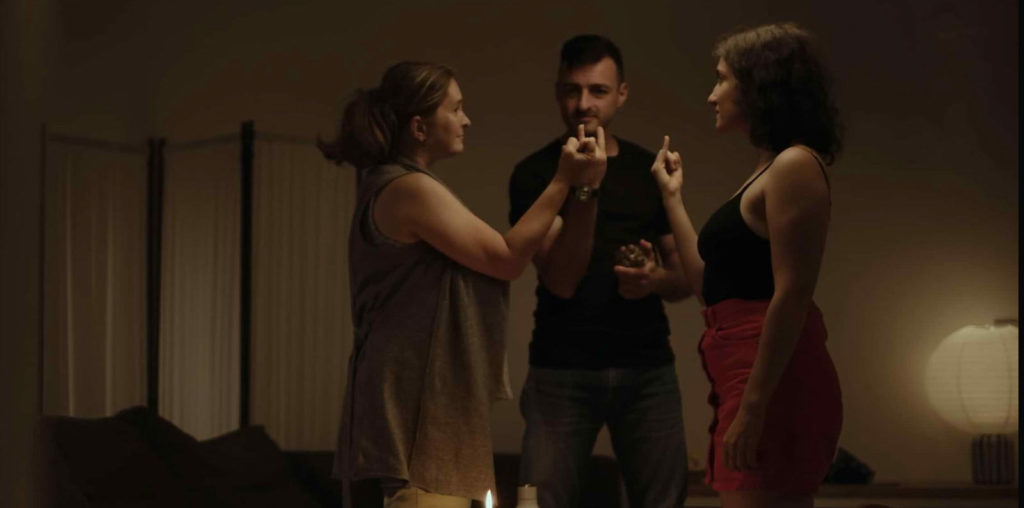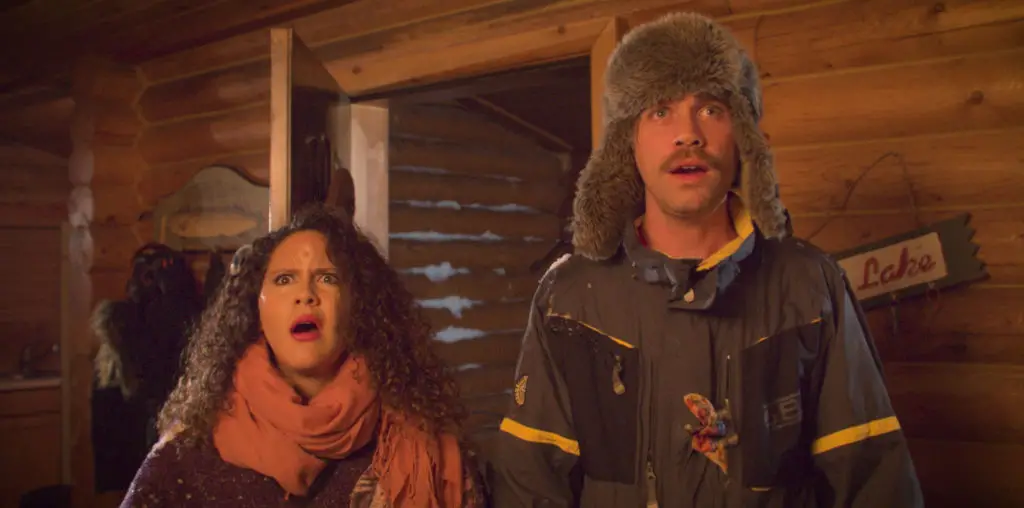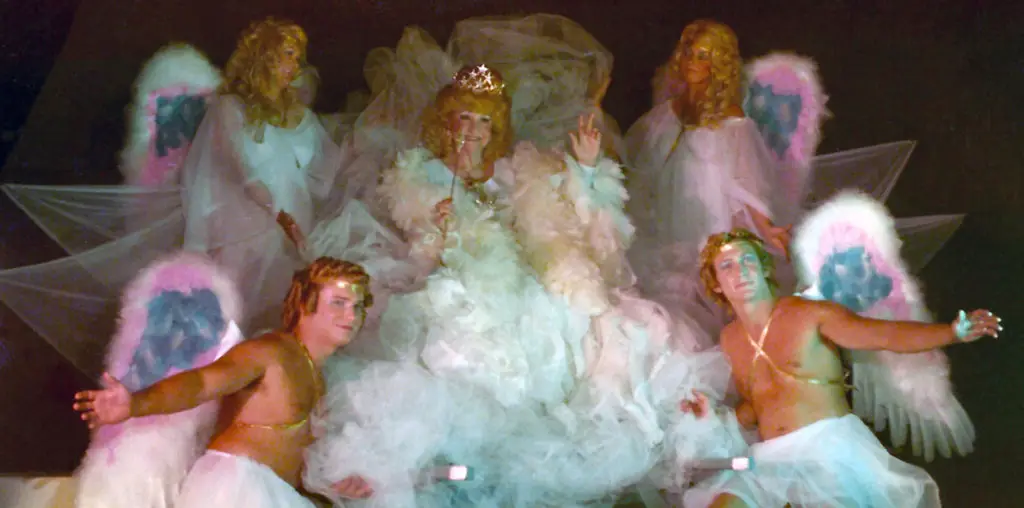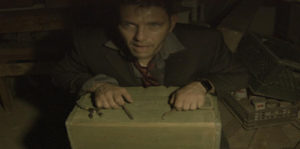
Prepare to be taken to the outer edge of sanity in the totally bent, sinister indie feature Self Harm, written and directed by Edward Gusts. Nick (Edward Gusts) is a grown man who never got it together enough to get on the big bus of life. Instead, he has spent his years being dragged behind it. Nick has developed a reputation with his job and his family as being completely unreliable. He even missed the funeral of his own dad (Rick Williamson), leaving his brother Cal (Gerard Griesbaum) to have to lie to their mother (Susan E. Kelejian) about Nick being stuck at an airport instead of sitting on his couch in his underwear.
Nick is a wreck and keeps playing the last voicemail his dad left him. In secret, he takes a utility knife to cut into his arm. Then Nick starts hearing a voice that gives him advice. The voice says it can help Nick get his act together, but it won’t be easy. It is going to take a lot of discomfort and pain to evict the worthless Nick from his body so that a fresh new Nick can move in. He only has to take the correct pills. This only goes well for so long before there are complications…
Self Harm belongs to a much more feral habitat of indie films than many are familiar with. Gusts is able to resurrect that old indie magic of the personal film made with limited resources that we saw throughout the 70s and 80s. Right from the get-go, we are bathed in gorgeous fields of grain in the image and murk in the color. Instead of a drag, these low-fi elements add an expressionistic gloom aesthetic that melds perfectly with the grim narrative. It also instantly sets the movie apart from anything that attempts to pass as normal.
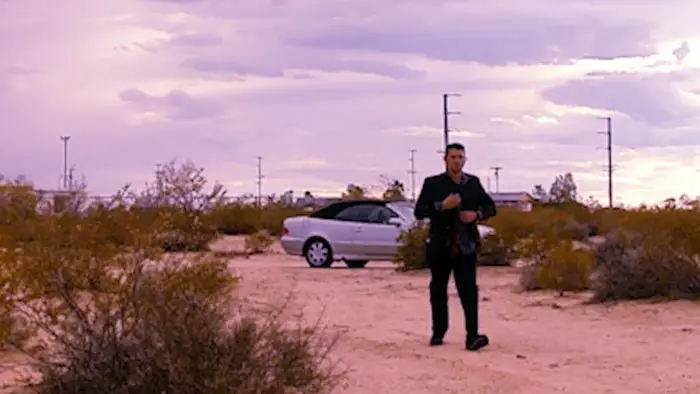
“He only has to take the correct pills. This only goes well for so long before there are complications…”
Gusts knows he has a rare beast here and is letting it howl in all its shaggy glory. It also allows him to go much further into the real ugly stuff when trying to transmit how bad feeling bad is. Anyone who has been this low will recognize this shadow world immediately. Those seeing it raw like this for the first time will finally understand the terror of feeling nothing and then everything. Gusts keeps the pacing at a good clip to keep the viewer captivated, so this downward spiral isn’t a long slog but more of a roller coaster.
At just over an hour, Gusts covers material most movies need three hours to deliver. While the plot-line remains rooted in the themes of the original doppelgänger story, Dostoevsky’s The Double, Self Harm has a lot in common stylistically with the great narcotic cinema wave of the 90s. The methodical routines once the medication kicks in allude to the cycles portrayed in Requiem For A Dream. This is reinforced by Gusts’ considerable skills as an editor. His sense of timing is tuned right down to the millimeter, and he knows how to steer a flash.
However, more than anything else, Self Harm feels like a 21st-century Trainspotting. They both have the same biting commentary on how an individual’s only choice to conform to society is as an insatiable consumer. You work harder to make more money to buy more stuff that leaves you wanting even more. The only striking difference is substituting IV drug use for vein mutilation.
This allows Gusts to take the viewer on a much more richly detailed path into the broken world of self-help through self-hatred. And the end is brutally spectacular, proving that there is always light at the end of the tunnel, even if it is from an oncoming train. Self Harm may not be for everyone, but with its lo-fi aesthetics and vicious insights, it is definitely a cut above the rest.
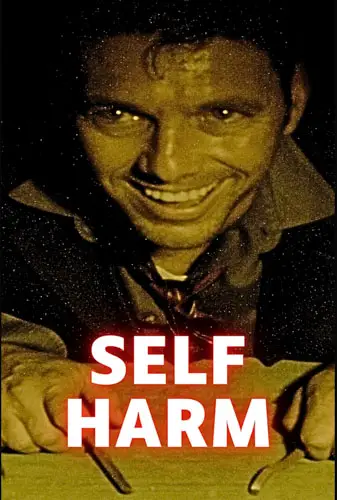
"…feels like a 21st century Trainspotting."
